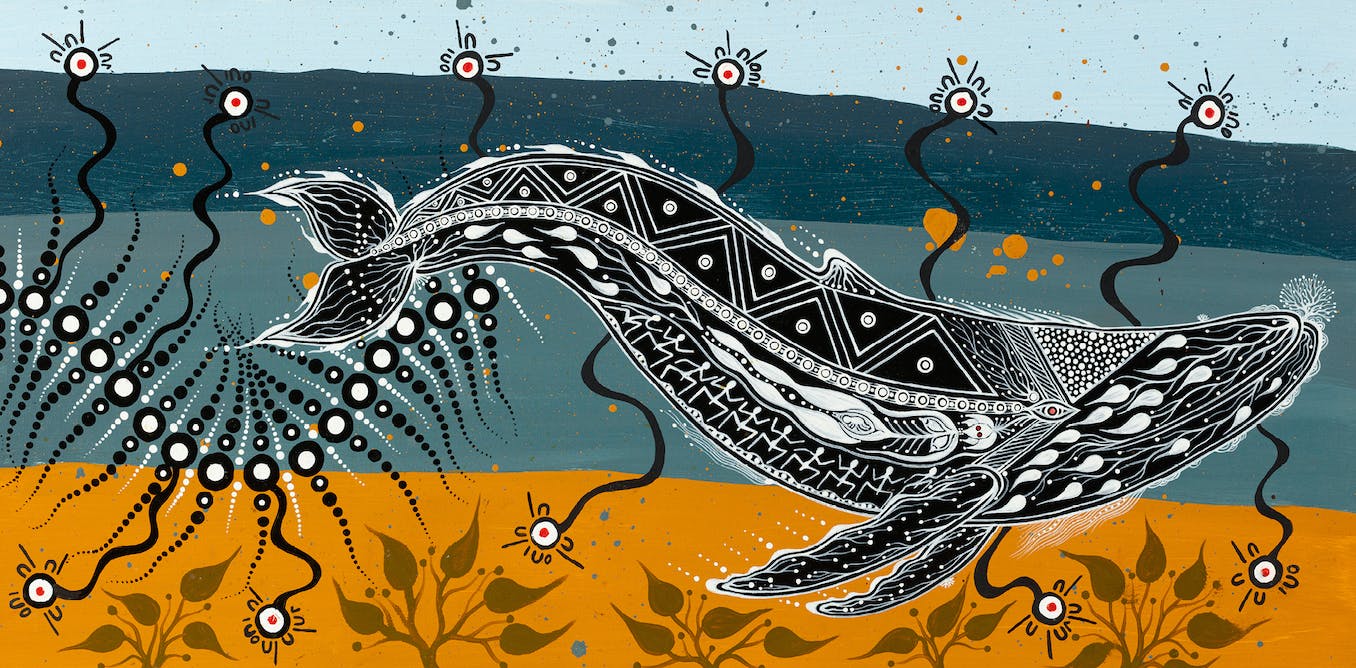The ability to list species of cultural significance is not possible under Australian law.
Last month, Australia marked Threatened Species Day by adding 48 more species to the list threatened with extinction.
As three Indigenous ecologists, we argue this approach of affording species greater protection only when they become threatened, falls short of our cultural obligation to care for Country when applied to species of cultural significance.
Waiting for these species to decline in order to show them care represents a failure to uphold lore.
Humpback numbers are recovering after industrial whaling of the species ended in 1963.
If we allocate funding and research based only on whether a species is threatened or not, we risk losing the tangible and intangible elements of cultural heritage and the First Nations knowledge of a species.
Another step is to realign policy and practice to make possible traditional management of culturally significant species.



It's a lovely idea, and absolutely something that should be done when we have a surplus of resources for protecting species, but this is unfortunately a triage situation. Redirecting conservation funds to protect individual humpback whales means that other species will go extinct, when they could have been saved.